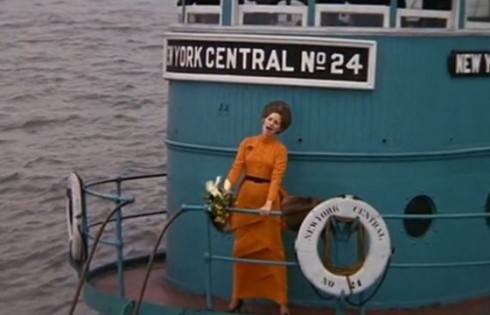
Paul Thomas Anderson’s January 9, 2015 adaptation stars a billion jillion famous people.
When the creator of brilliant films takes on the adaptation of a renowned author of modern classics, you go big or go home. You could end up with a critical bomb like The Hobbit installations (go ahead and fight me, but I said it!) or a masterpiece like There Will Be Blood. I think I need to rewatch Paul Thomas Anderson’s most recent cinematographic adventure three or four more times to really decide on which end of the scale Inherent Vice lands. The film, which was released widely to theaters on January 12, is visually stunning and accompanied by one of the better film scores I have heard in some years, but when I read Thomas Pynchon’s novel by the same name, I knew this would be a nearly impossible book to successfully adapt to the big screen. My initial reaction is that Anderson’s attempt, while valiant, fell short of the mark.
Larry “Doc” Sportello is more than a pothead. He’s an enthusiast, a connoisseur, a meta-hippie. That’s just his day job. Doc is sometimes a private detective, and when his ex-old lady Shasta shows up on his doorstep one hazy night going on about a conspiracy to kidnap her new millionaire boyfriend, Doc is helpless to avoid being pulled into a mess. And the mess that real estate moguls, cults, Asian mobs, and drugged-up dentists cause in 1970’s Los Angeles is too much for most to handle. Doc follows Shasta’s trail through the upper echelons of L.A. to the seedy depths where neo-Nazi biker gangs and crew-cut FBI agents like to roam.
The ensuing drama is a series of long, panning, slow-motion shots of said real estate moguls, neo-Nazi bikers, et. al. in a beautiful side-scrolling painting of a an era. The film wouldn’t be complete or nearly as beautiful, though, without it’s corresponding soundtrack, created by none other than Paul Thomas Anderson’s favorite musical boy genius Jonny Greenwood. The guitarist for famed rock band Radiohead also composed scores for Anderson’s There Will Be Blood and The Master. The two now exist on a spectral plane of their own, like a secret club where only the critically acclaimed and artistically progressive get to go. I expect we’ll see more of their collaborations in the future.
Immerse yourself in the master mood-setter’s musical prowess here: Jonny Greenwood’s immaculate score

Jonny Greenwood and his absolute musical score genius are two of the top reasons to watch Paul Thomas Anderson films.
I won’t lie, though; despite its beautiful visuals and score, Inherent Vice was a difficult movie to fully enjoy. The several outright humorous moments, often featuring Josh Brolin’s tightly wound Detective Christian “Bigfoot” Bjornsen, added a wonderful lightness to what would otherwise be a depressing story of corruption and futility. But even I, having read the book quite recently, felt the strain of keeping up with a convoluted plot and unfamiliar verbiage. Those who didn’t read the book first, and I imagine there are many who haven’t, will probably need to lean on the occasional, disembodied narration like a hand rail. It guides viewers through important back story and the jumbled cerebral exercises of Doc’s hazy mind. With the narration, Anderson treads the fine line of telling too little and telling too much. For once, I think a movie could use more narration rather than less, and I’m not just saying this because I enjoy the sound of Joanna Newsom’s voice (talking, not singing so much), but a lot of valuable information is omitted or gets lost. By the second or third re-watch, though, I may change my mind. You will have to decide for yourself and come tell me what you think.
Book or Big Screen: I try to be political about these discussions, but some things are just better left to 369 pages of terse prose. Between the confusing plot and the endless period references, the book–and the slower pace of entertainment consumption of the written word–suits the theme and plot better than the film. While the film is easy on the eyes and ears, Inherent Vice the book takes the cake on this one.
Readers, Beware: You may need to dig into the novel for about one hundred pages before you start swinging with the groovy cats of Los Angeles’ hippie-covered beaches, but once you get there, it’s a beautiful place. Pynchon is magical, hilarious, and driven all at the same time. That being said, Pynchon’s method of setting the mood is by bombarding you with slang and pop-culture references, all of which sometimes takes precedence over plot and character development. The movie has it easy: a few well-placed vintage product placement and an accurate costume designer do all the work.
Viewers, Beware: The film version of Inherent Vice is a wild ride, and if the deep layers and plot twists don’t muddle your mind, then the unfamiliar slang, barely audible conspiratorial whispers, and drug-addled slurs will. Had I not read the book first, I imagined I would have been utterly lost ten minutes in. The only saving grace was Joanna Newsom’s soothing narration, which for the most part, smoothed out the wrinkles.









